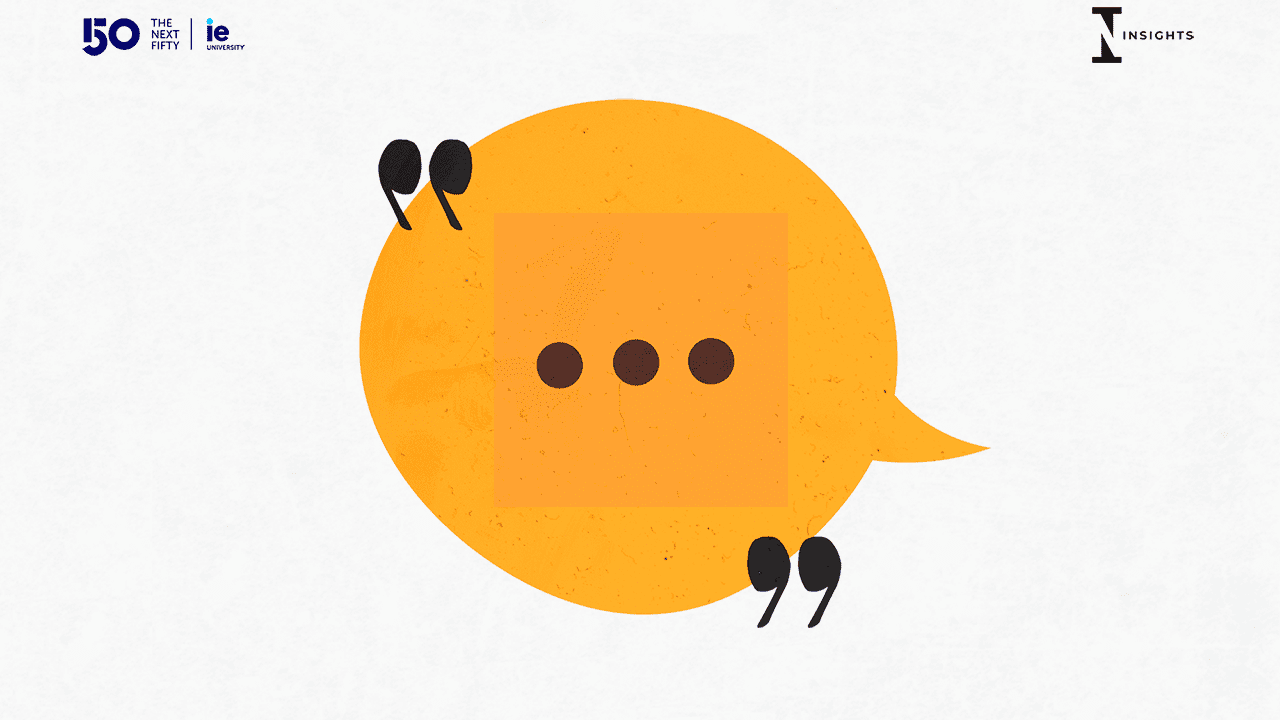Link copied
IE insights - IDEAS TO SHAPE THE FUTURE - Society

The Future of Language
Will improvements in machine translation and the spread of English lead to a monoculture of language?
You are what you speak. If you ask people around the world what groups they belong to, many will name a linguistic one. Danes, Catalans, Tibetans, Kurds, Arabs, and so on are, in large part, what they are because they speak Danish, Catalan, Tibetan, Kurdish, and Arabic. Unfortunately, our linguistic identities are often in conflict. Spain is one place where such issues are in the newspapers almost every day.
How will this change in the next 50 years? One prediction is that machine translation will soften such conflicts. Many people already use tools like Google Translate on a daily basis. Some even use the tools in which you can speak one language into your smartphone, and it will speak the translated sentence a moment later. These are bound to improve, so much so that some people think that this will replace the need to learn foreign languages. Everyone will understand everyone.
I am not so sure. For one thing, smaller languages are badly underserved by such technologies. English-to-Spanish automated translation is good; Basque-to-Icelandic is rather worse. Second, this prediction treats language as, primarily, text. But people will still want to have warm, face-to-face conversations. Imagine a first date mediated through the translation on even a miraculously improved smartphone, and you will have a sense of why a universal translator in your pocket will not remove all barriers between people.
Another prediction is that English will sweep the world, becoming everyone’s second language. In this scenario, it would become less and less associated with Britain and the United States, and instead what was once dreamed for Esperanto: the neutral language that a Pole uses to talk to a Brazilian. The value of learning English is growing literally every day, as a generation that has never learned English passes away, and one that has never lived without it grows up.
But English sweeping everything in its path would also be sad in many ways: a homogenizing of linguistic life. No one wants to live in a monoculture. So, my wish for the future of multilingualism is that regardless of whether machine translation or English becomes the standard for business and tourism, that all people—with Europeans taking the lead—learn another language besides English.
If Spaniards learn French, Germans learn Italian, Japanese speakers learn Korean, Argentines learn Portuguese, and my fellow Americans learn Spanish, then we can have the best of all worlds: an identity rooted in a native language, a useful auxiliary for practical and wide communication, and the knowledge of another language (perhaps that of one’s neighbors) to foster intimate human connections. Multilingualism is not easy, but it is certainly possible, and its benefits—for reducing conflict and for fostering understanding and empathy—are hard to overstate.
© IE Insights.
